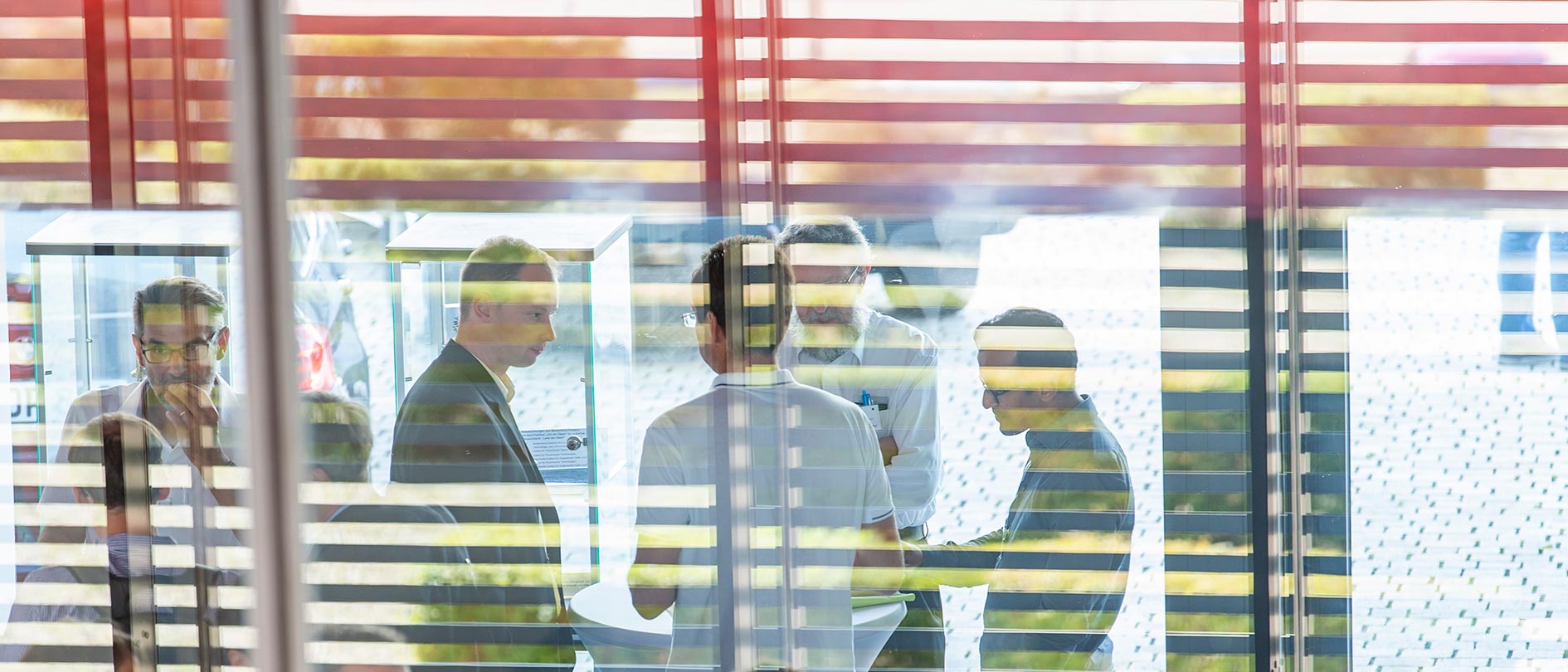Furthermore, innovation research in the field of quantum technologies has experienced strong growth in recent years, also here in Jena. Quantum technologies, especially practically tap-proof communication by means of quanta, are an essential basis for further digitization. In programs, some of them transatlantic, such as the Hyperspace research project, our researchers are helping to lay the foundations for an intercontinental quantum network through satellite-based quantum communication. Major projects such as the QuNET initiative continue to contribute to maintaining security in the information society as well as European sovereignty in pioneering future technologies.
News › Fraunhofer IOF • New space strategy of the German government
Statement: Fraunhofer IOF Institute Director Andreas Tünnermann welcomes important step for national space research
This week, the german federal government has approved the new space strategy. Andreas Tünnermann, Director of the Fraunhofer Institute for Applied Optics and Precision Engineering IOF and Chair of Applied Physics at Friedrich Schiller University Jena, welcomes the new strategy as an »important step for national space research«. He expects that especially the innovation ecosystem at the photonics location Jena »will make relevant contributions to the implementation of the new space strategy«.
Andreas Tünnermann: »As a research institute with a relevant focus on the development of photonic technologies for space applications, we very much welcome the German government’s new space strategy. The decision is an important step for national space research. It opens new doors towards a future, with a foresighted perspective in mind, to find answers to challenges that are right on our doorstep – climate change, for example.
Especially here in Jena, we find an innovation ecosystem that will make relevant contributions to the implementation of the new space strategy. The city has been a world-class optics and photonics location for 200 years. Space has always been a place of longing for research and science. Fraunhofer IOF, as well as other research institutes, globally operating companies and emerging startups contribute to the development of innovations for earth observation and astronomy based on new technological approaches, such as freeform or nano optics. Fraunhofer IOF in particular has been active in many of the fields addressed by the new space strategy for many years:
European and international cooperation and fundamental space research is further driven, particularly in the major space missions. The James Webb Space Telescope, for example – a collaboration between the space agencies NASA, ESA and CSA – aims to find answers to some of life’s big questions: Where do we come from? And perhaps is there even further life in space? Researchers from Jena have manufactured high-precision mirrors and a Calibration Spectral Source for the largest space observatory ever built by mankind.
We are also looking forward to the ExoMars mission, which is currently scheduled to launch in 2028. It is intended to expand space exploration in the direction of the red planet and thus extend our horizons of knowledge beyond the boundaries of the Earth. Employees at the Fraunhofer Institute in Jena developed a miniaturized laser module for analyzing rock samples for the mission’s Mars rover.
In general, space opens the possibility of a relevant change of perspective. Challenges such as climate change, some of which still seem far away in our everyday lives ›down here‹, show a far more threatening face from ›up there‹. Fraunhofer IOF researchers are involved in numerous missions and projects to find solutions to urgent issues that threaten social peace and security in the long term – whether through our participation in the German environmental mission EnMAP, which aims to make the consequences of climate change visible, or the development of a new satellite technology that will help to use valuable resources such as water more sparingly and efficiently in the future.
It is still a great pleasure for us to see how former members of our institute go their own ways and develop new markets. The SPACEOPTIX GmbH for example, a spin-off from Fraunhofer IOF, builds components and systems for applications in the aerospace sector and thus addresses space as a growth market, also called the new space market.
We are proud that as an institute we make an important contribution to Earth observation as well as climate research and space exploration. My special thanks goes to our scientists, whose work helps to enable excellent basic research on one hand and to drive relevant innovations on the other. We are certain that the German government’s new space strategy will be another powerful driving force and that the key technology of photonics in particular will continue to strengthen space and space research with significant contributions.«
The German government’s new space strategy, entitled »Neue Zeiten, neue Relevanz« (engl.: »New Times, New Relevance«) was announced on September 27. It is intended to take account of the increasing importance of space travel for society. The German government’s last space strategy dates back to 2010.
You will find the press release here: www.iof.fraunhofer.de/pressrelease
